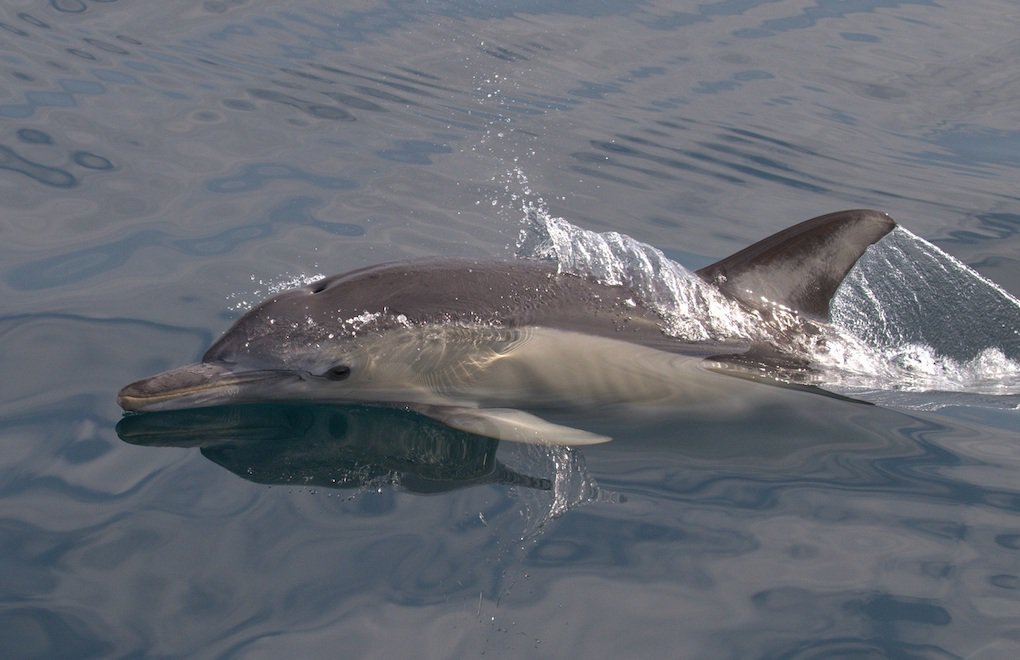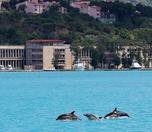‘Not dolphins, but humans are behind the drop in fish stocks’

* Photo: WWF-Turkey
Turkey's Ministry of Agriculture and Forestry released a statement last Friday (January 8) and announced a 10-day ban on the fishing of hamsi, a small anchovy-like fish. The aim of the fishing ban was to help the stocks of the fish recover from sharp drops in Turkey's waters.
In response to this ban, an academic said that "the population of dolphins was gradually increasing due to the fishing ban and a grown dolphin ate 70 kilograms of hamsi a day." The academic further argued that "dolphins should be hunted in a controlled manner" for these reasons.
Amid criticisms and reactions sparked by this statement, the Turkey Office of the World Wide Fund for Nature (WWF) released a detailed statement and documented that the allegations of the academic did not reflect the truth and were not supported by scientific facts. The organization underlined that "the drop in fish stocks was caused by humans, not by dolphins."
In line with the fisheries act and international treaties that Turkey is a party to, dolphins have been under protection since 1983.
'Dolphins are an important part of ecosystem'
Speaking to the state-run Anadolu Agency (AA), Arda Tonay, a marine biologist at İstanbul University (İÜ), has also stressed that "dolphins are not to blame for a recent drop in the stocks of hamsi."
"The main reason for the fall in fish stocks in the sea is the human factor. Dolphins are an important part of the marine ecosystem. Nobody can hunt dolphins," Tonay has said and briefly added:
"Since dolphins are not fish, they cannot spawn millions of eggs and reproduce like fish. Dolphins, like us, are mammals that produce one calf a year, carry it in its belly for months and breastfeed it.
"They do not give birth to another calf until it ir grown up. So the numbers of dolphins cannot rise very much."
'Unfortunate and incorrect reports'
Tonay, also the deputy head of the Turkish Marine Research Foundation, has stressed that reopening dolphin hunting is neither legally possible nor scientifically wise, as dolphins are a pillar of marine ecosystems.
"Overfishing, pollution, and mistaken fishing policies cause falls in fish stocks. We need to regulate these in order to prevent falling fish stocks," Tonay has said, adding that the media reports suggesting that dolphins eat 70 kilograms of fish are both unfortunate and incorrect.
"Since dolphins are a part of the marine ecosystem, they will of course eat fish. Dolphins eat fish between 2 percent and 5 percent of their own weight, if they find it," Arda Tonay has explained further. Considering that a 40-meter fishing boat can catch 50-60 tons of hamsi at a time, focusing on how much a dolphin eats is pointless, according to Tonay.
"It is unacceptable to target dolphins as the reason behind the drop in hamsi stocks," he has concluded his remarks. (SD)





